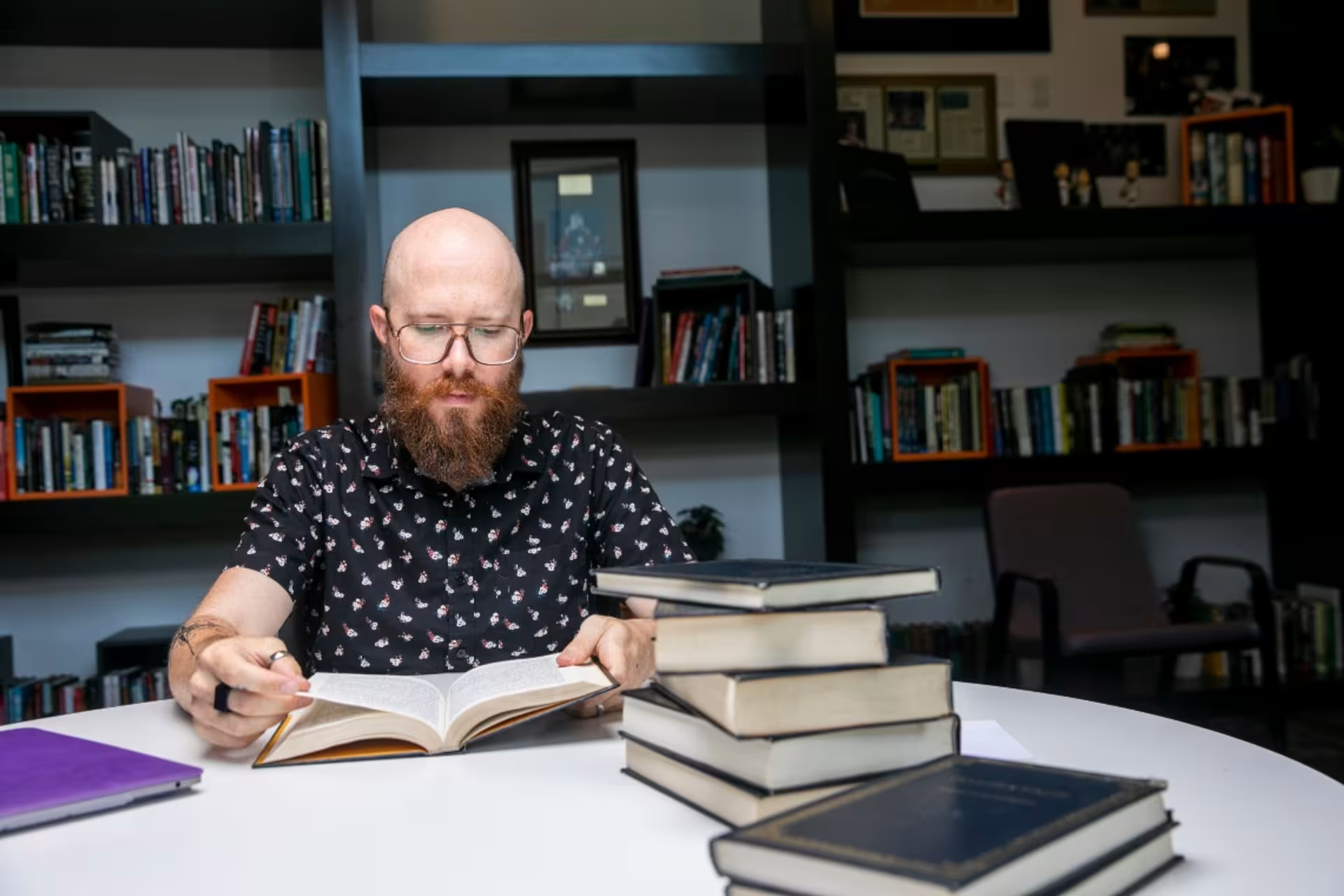
Online Graduate Certificate in History
Become a History Teacher for Postsecondary Learners
Grand Canyon University’s online graduate certificate in history provides those with a master’s degree and teaching background the opportunity to teach online or on-campus history courses at two or four-year institutions. This program serves as a continuing education pathway for teachers pursuing possible career advancement, a new career path within the education field or a profession where you can share your passion for history.

Online: $600 per credit [More Info]
The University will accept one course of the total certificate requirements in transfer.
Credits: Fill out the Lopes Eval to find out what will transfer
Admission Requirements (Master's)
- Undergraduate Degree*
- 2.8+ GPA
OR 2.5+ Unweighted GPA and
- GMAT: 500
- GRE: 300 combined**
Admission requirements may differ based on degree level, program and modality, or transfer status. Some programs of study may require a higher GPA and/or other qualifying criteria for admission. Please review full admission and program requirements in the University Policy Handbook.
* Degree must be from an accredited college or program that has been approved by GCU.
** Combined verbal/quantitative, after August 2011 (1,000 combined verbal and quantitative, prior to August 2011).
Pursue Your Graduate Certificate in History Online at GCU
Take the opportunity to fulfill continuing education credits and acquire new knowledge and skills in your career field with added flexibility. Designed for working professionals, this online graduate certificate in history can be completed on your schedule through GCU’s digital learning platform. You will have access to online learning resources and faculty who are knowledgeable in the history and education fields.

Requirements for the Graduate Certificate in History
Balancing history content with pedagogy and classroom techniques, this graduate certificate offers teachers advanced training within the fields of history and education. As a student, you have the opportunity to meet the graduate course and ongoing professional development requirements, as well as the 20 credits necessary to pursue teaching opportunities at the postsecondary level.
Research and Analyze Events in History
As a student who is curious about and fascinated by American and world history, you will be given the tools to build upon your historical knowledge and discover how to translate this knowledge into instruction for undergraduate classrooms.
This history graduate program certificate offers five select courses from GCU’s Master of Arts in History with an Emphasis in Education.
You can expect to engage in the following topics:
Historical global themes
Population, economic networks, power and authority, government, race and class, cultural integration, science, technology, environment, spiritual life, ethics and gender
Historical Resources
Resources and opportunities provided by museums, historic places and archives to support teaching postsecondary history courses
Shaping the West
How diverse cultures, dynamics, economics and politics shaped the American West frontier into modern America
Perspectives on the past
Understanding of the past through contextual perspectives of race, class, gender and ethnicity and how these elements shaped the past
Historical U.S. themes
Migration and immigration, religious and philosophical thought, republic and democracy, industrialization, business, labor, prosperity and consumerism, reform movements, social justice, war and society in American history
Career Paths for Graduate Certificate in History Holders
Equipped with this online graduate certificate in history, graduates who hold at least a master’s degree and meet state teaching licensure or certification requirements have the opportunity to pursue positions in higher education as a college or university professor, faculty member or instructor. Potential workplaces include two or four-year colleges, universities, trade or technical schools and companies that specialize in educational research and publishing.
Qualified graduates can enter into the higher education field with increasing job opportunities. The U.S. Bureau of Labor Statistics Occupational Outlook Handbook estimates job growth for postsecondary teachers to increase by about 12% from 2021 to 2031.(See disclaimer 1)
Estimated number of new jobs for postsecondary teachers from 2021 to 2031(See disclaimer 1)
Online Graduate Certificate in History FAQs
Learn more about the graduate certificate in history by reading through our answers to these common questions.
Is a graduate certificate in history worth anything?
What are the best history graduate programs?
What certifications do you need to be a history teacher?
Is earning a graduate certificate in history online hard?
Program Curriculum
Core Courses

If you are ready to build upon your knowledge of history and pedagogy, complete the form on this page to continue your education at GCU. Our university counselors are available to help answer your questions and set you on the right path for your career goals.
Visit the "State Disclosures" section on the page of the program you’re interested in at gcu.edu for details on state restrictions.
- COVID-19 has adversely affected the global economy and data from 2020 and 2021 may be atypical compared to prior years. The pandemic may impact the predicted future workforce outcomes indicated by the U.S. Bureau of Labor Statistics as well. Accordingly, data shown is effective September 2022, which can be found here: U.S. Bureau of Labor Statistics, Occupational Outlook Handbook, Postsecondary Teachers, retrieved on Jan. 19, 2023.
- Retrieved from Intelligent, Best Master’s in History Degree Programs of 2022, in July 2022.
- Teacher Certification Degrees. (n.d.). History Teacher Career Guide. Retrieved on July 19, 2023.


